Nothing screams empowerment more than being yourself and loudly owning that. For Jess Holt, the Sydney-based artist behind total tommy, she has taken solace in the shape she’s taken from all sorts of life’s bruises accumulated on herself and others: processing a breakup, moving away from her home city of Melbourne, and exploring her queer identity. It’s apt that she’s named her scuzzy, bedroom rock debut record BRUISES. These events have given Holt the confidence to be the artist she is today. It’s only after the upheaval that you begin to see the good things in what felt like the world tumbling down. After realizing that for herself, Holt’s concocted these profound anthems which can reassure young audiences still discovering themselves: “You’re not alone.”
BRUISES is vulnerable and relatable in all the right places for any young person finding their place in the world in the face of turmoil, or even adapting to the uncertainties of young adulthood. It helps that the album rocks, too. I spoke to Holt about her pivot from indie pop music under a different alias to the indie-grunge sound on this album, her aspirations with touring as her rockier musical identity, and the ways in which she hopes to inspire people through her lived experiences.
How does it feel to have all these songs finally collated as an album after writing them across several years?
Jess Holt: I was writing them for about three years. There’s a track on the record called “SODA,” which was the first one that came about and started off the sound for this project. My vinyl arrived the other day and it definitely feels real now. I think having something tangible is really nice, you know? It’s so different to just releasing singles, which is what I did this year. That’s been cool, but having it as a physical thing now, it feels good.
When did the album start to take shape, in that these aren’t just songs anymore, you can put them together in a way that works as an album?
JH: I started writing it as an EP and then I kept writing for ages because I was working out how I was going to start releasing it. So I just ended up with this massive collection of songs, and then I was like, “I think I want this to be a record.” Then I could find where the gaps were, so I think I had like seven songs and I definitely wanted them on the record. I wanted to have the final track be “Shark Attacks,” it’s such a chiller of a song and I wanted it as a closing track specifically. Then there’s one like “ribs,” which I feel gives the record a lot of shade that you don’t necessarily get from the singles. It was hard to finish because I just had all of these ideas in my head of what a record would be. Making sure it had a bit of all that stuff in it was fun.
What was the catalyst for veering into a grunge direction for this project? I read up and discovered that you used to perform under a different name, Essie Holt, making cleaner indie pop music.
JH: I started listening to a lot of music I sort of grew up with. My dad is super into rock. It was always around me growing up, but I didn’t know that I pushed away from it for a bit and got more into pop, sort-of-indie music. I think in the last few years, rock music is what I’ve loved and seeing so many gigs and discovering heaps of my favorite bands, I was like, “This music feels so organic for me to make.” Guitar was also the first instrument I picked up. I wanted to make piano music for a time there, but I’ve completely gone back to guitars—guitars make me feel good and drums make me feel good too. Drums make me move—like, I hate to dance, but I just feel it all the time.
Playing with that rockier sound palette, were there any particular artists or albums that inspired you when making this record?
JH: For this record, I discovered Interpol early last year and that was a huge moment for me. Even just the way the vocals are produced, it’s so close but it’s also through amps. Everything’s just kind of dirty-sounding and that was huge for me. I also love Momma, I just love that band, I think they’re really great. And stuff like Fontaines D.C. and Wonder Horse, a lot of British rock in general.
Did that pivot to that sound help you express yourself more authentically?
JH: Yeah, for sure. I think the lyrics are way more straight up now. I used to hide behind metaphors and I was scared to write stuff that people in my life could potentially hear, whereas now I just don’t give a shit about that. I’m just like, “This is how I feel and this is what I’m going to say,” you know? There’s a song called “Losing Out” which is pretty brutal lyrically, and if you know the people who it’s about, it cuts pretty hard. So, yeah, I think I’m way more pointed with lyrics and am really starting to see art as self-expression. I can say what I want. It’s my project, you know, so that’s been a cool discovery.
With your lyrics, what do you aim to convey as total tommy? There’s a lot of honest and profound messages in your songs, with their relatability to all sorts of precarious experiences, things like falling in and out of love and exploring queerness, which appeal to a lot of young people. How does it feel to be in a position to make those messages?
JH: It’s been nice to be in that position. I think a lot of the songs are about my relationship with myself, in a way that I process what’s going through the world. I think I’m realizing something will happen in my life, then months later I sort of think, “That was really hard.” At the time it’s like a whirlwind and you just kind of get through it, then later on you’re like, “Oh my god, that was a really fucked time.” So I think songwriting for me has always been like therapy, processing what’s happened.
There’s a lot of that on this record. Like, I moved cities and I went through a massive breakup, and I came out as queer and met my wife and I sort of just… I don’t know. I lived quite a lot of life in a short space of time and I was just having so much fun, then later I was like, “Woah, that was a massive time.”
The relatability in your songs serves as a way to say to your audiences, “You’re not alone.” Are you proud to be able to say that with your music?
JH: Yeah, it feels really good. It’s so, so nice. I’ve always seen music making as kind of very self-indulgent, like I get to say what I want. But recently I’ve had some nice messages, like I had a mum reaching out on behalf of her daughter being like, “Thank you for helping her come out as queer, she loves your music”—that kind of thing. I’m just starting to feel that now and maybe it’s not just about music, maybe it’s not just about me, and that feels good. I like that, that was huge for me growing up—people writing songs that I still love to this day, where you’re, like, “I thought I was the only person that felt like that and somebody’s captured that feeling.” I’d love to be able to do that.
That’s really cool, I totally get that. When you first started performing as total tommy, with all the reception and shows you’ve been doing—like opening for Teen Jesus and the Jean Teasers, which is awesome—did you expect to get those kinds of opportunities? How was it touring with them?
JH: I had really big ambitions when I first put the music out and I’d been waiting for so long, so I was kind of ready. My band and I have been rehearsing for ages, we’re ready for these shows, you know? But yeah, it was so nice that the opportunities started to come. The Teen Jesus tour was, like… we found out, like, the week before that we got that and made it happen, which was really cool. They were the biggest crowds I’ve ever played to, so that was amazing. It was because we were the first support act as well, their fans are so amazing. They literally line up and want to see every band and are super keen on the merch and everything. So it was really nice getting to meet some of those people and then now hearing from them on Instagram and stuff that like fills my heart. They’re so sweet. And the band Teen Jesus are fucking amazing and they’re killing it, they’re supporting Pearl Jam this year. So wild. They’re just like the nicest humans, so that was a really fun tour.
You have your upcoming headline shows as well for the album. What are you looking forward to the most with that? Just being able to play out the material, you know? Are you nervous? Feeling excited?
JH: I’m so excited for the shows because we’ve been playing. We’ve been doing a set with, I guess, all the singles and upbeat tracks. For the headline shows, I’m excited to show some of the other tracks on the record that I wouldn’t necessarily play at a festival. There’s a couple that we’ve never played live before that we’re going to do, like some special arrangements for the headline shows, but I still want it to be a rock show at the end of the day. I want everyone to be really sweaty and just high energy. We played a show at the Factory recently, which was really packed in the room. I want them to feel like that energy because it was just so fun. I love small rooms for that reason.
Of all the songs, which one pops out the most for you? That could be from how it came together or even the composition itself.
JH: I think “REAL” is the one I’m most proud of. I think it’s the best writing on the record. I wrote it in a night and it just worked from the get-go, which was nice and doesn’t always happen. With the sections, I chopped them up weirdly because my producer Mark Zito gave me a bed to work with that day. Some of the cuts are really weird and jolted, but I love it. I love that we just left it. “Losing Out” is super special to me as well, because I think it’s the most lyrically dense but also pointed on the record, like I didn’t hold back on that one at all. That one feels great to play live because everyone’s like angry at the moment. Everyone’s like, “Let’s let that out.”
Then also “microdose” is really special because I always wanted that to be the first thing people heard from me. That was another song I remember so clearly writing, even though it was probably two-and-a-half years ago now or something crazy. It was just one of those solo moments in the studio for me that I was focused and so into writing it. It was about friends at the time so, I don’t know, there’s a lot of special ones. “ribs” is also really special to me because it was about a friend that was having a really hard time, and I just didn’t think it was in me to write a song like that, so that was cool.
Did any of the songs come about spontaneously, just in the moment?
JH: Yeah, when the record was pretty much done, I was in Melbourne with my wife and producer Mark and we were finishing off another song and we were like, “Let’s just try writing one more, we have two hours left in the session.” My wife was, like, “You don’t have a name for a song about a person, we should call it a person.” So that was a cool idea to start with. So “ADELINE” came from that day; it sounds really similar to when we wrote most of the lyrics in that session. The production didn’t change at all and we sat in the park and finished the lyrics the next day, it was done straight away. It was bumped to the third single. We had all these other ones in mind but I was, like, “No, this just feels right.” It was cool because most of the stuff on the record I’d been sitting with for so long, whereas this was new and shiny and fun. I want to release music like that—I want to write and then just put it out, which doesn’t always happen.
I’m also curious about the album title, BRUISES. Why’s it called that? Is it because of the personal lived experiences behind the record?
JH: It came from a conversation I was having with a friend and they were, like, for when bruises heal you remember them generally, but you also go through life and leave little bruises on people, and also on yourself. They’re not terrible, but people definitely remember it. So, this album is very like, I’m not a terrible person but I’ve definitely left bruises on people and on myself, so that word felt right when I came across it.
I was going to call the record WHIPLASH because it feels a lot like that to me, sonically when I listen to it. It feels a bit like that, also like the joltedness of life. But “BRUISES” felt better because it’s got more emotion to it, which this record has.
With this album finally out to the world, what does the future for total tommy look like? What are your plans going forward, especially with the tour coming up?
JH: I think heaps of shows—this is such a live project and it’s my favorite thing to do. So, I’d love to have a balance of touring really hard then going away and writing. It’s just a cycle of that because I love writing, too, and I’d love to write in a big chunk and in a cool space where it feels like I’m making art, like making a record. That’s the entire purpose for a while, so that would be cool. But yeah, I guess next year, we’ll see—we’ve got a bunch of festivals coming up after the headline show. Next year we’re playing Yours And Owls and then doing some shows in the UK and Europe around mid-year, which will be fun. Very keen to get over there—we’ve never played there and my team’s based there. That’ll be fun. Then I’m just writing the next thing right now.
Talking more broadly with performing as total tommy and the artistic identity you’ve created over time through your music, what is it that you ultimately want to inspire people to do?
JH: I think it’s like having a quiet confidence in a way of like, when you get to a point of where you’re like, “I know myself, this is what I won’t compromise on, and this is what I stand for,” then you get to know yourself better and can put boundaries in yourself. So I think I want to give people that confidence, even if it’s just being in a group of people and feeling really comfortable.
Maybe even for young people who are figuring themselves out, or even if they see someone who’s queer and they’re queer themselves… they may see you doing your thing and think, “Oh, like, I can do that. It’s possible. I see myself in her.”
JH: Yeah, definitely. Also, my wife plays in the band with me and people can kind of see, “Oh, they’ve got this beautiful relationship that’s inspiring.” It’s not just like a pine, it’s like, no, you can have a great life.
Do you have any final words on BRUISES? Is there anything else you want to add on about the album that you haven’t touched on yet?
JH: Play it in order because it took me a long time to finesse the tracklisting and the way it flows. I’d love for people to sit and listen with headphones, then listen outside on a walk and just in different contexts because I think the music for me always changes depending on where I am.
BRUISES is out now on all streaming platforms. You can follow total tommy for updates over on Instagram!


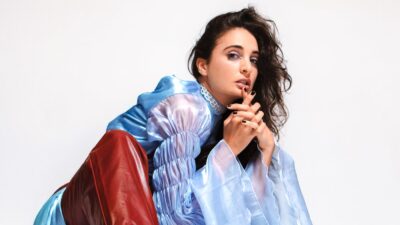
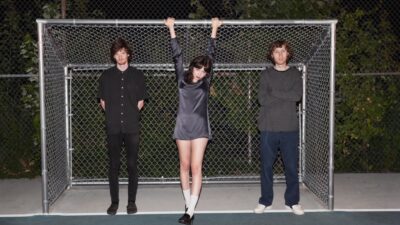
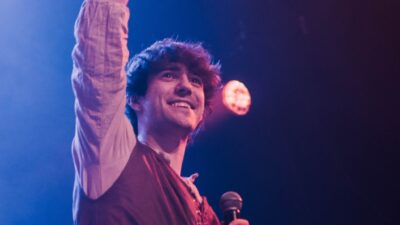
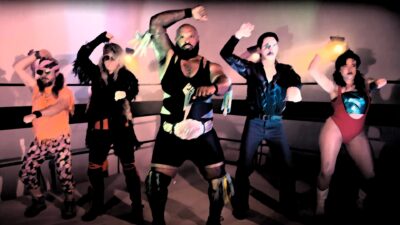
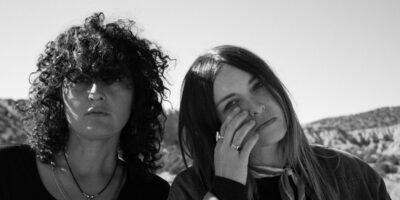
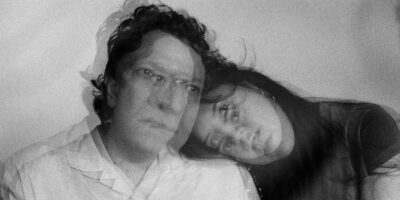
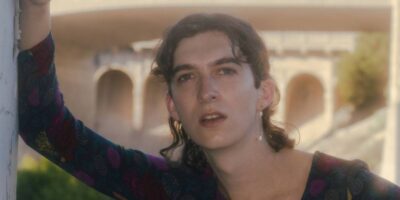
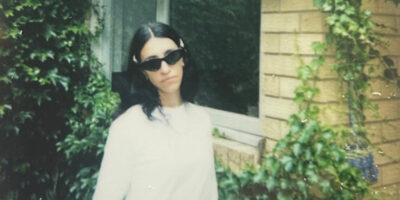

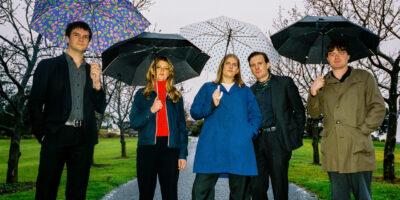
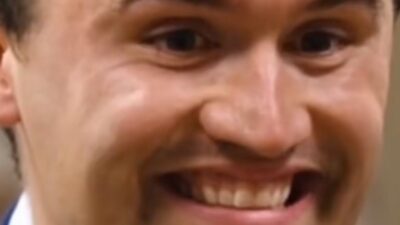
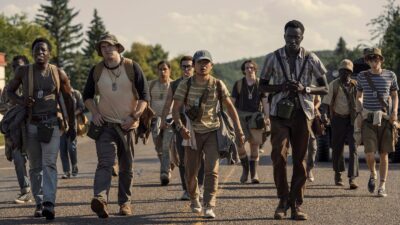
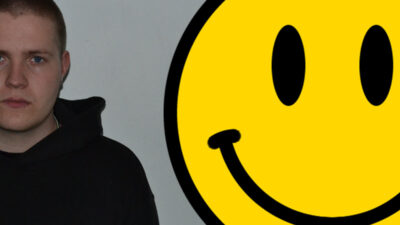
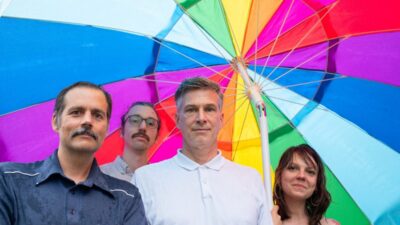
Comments